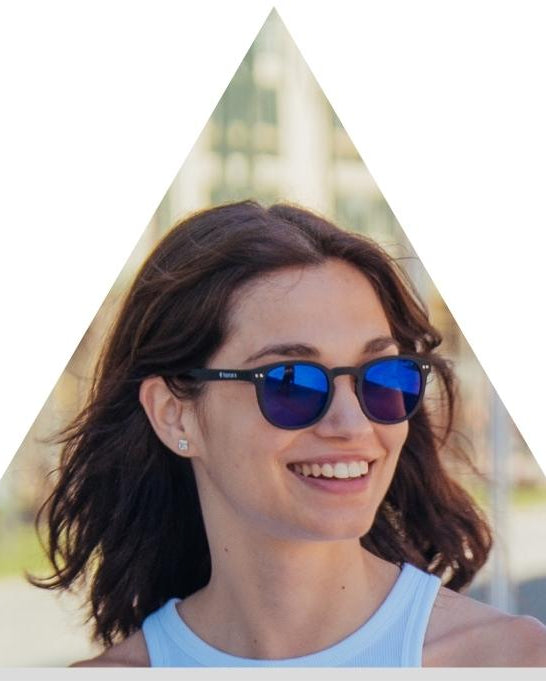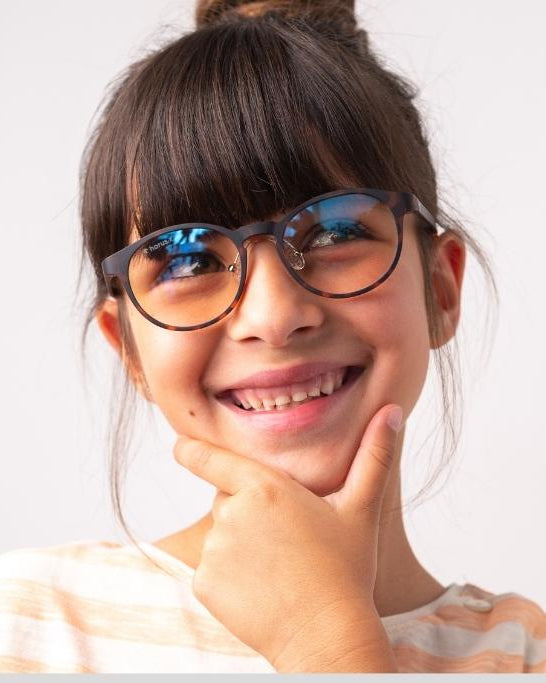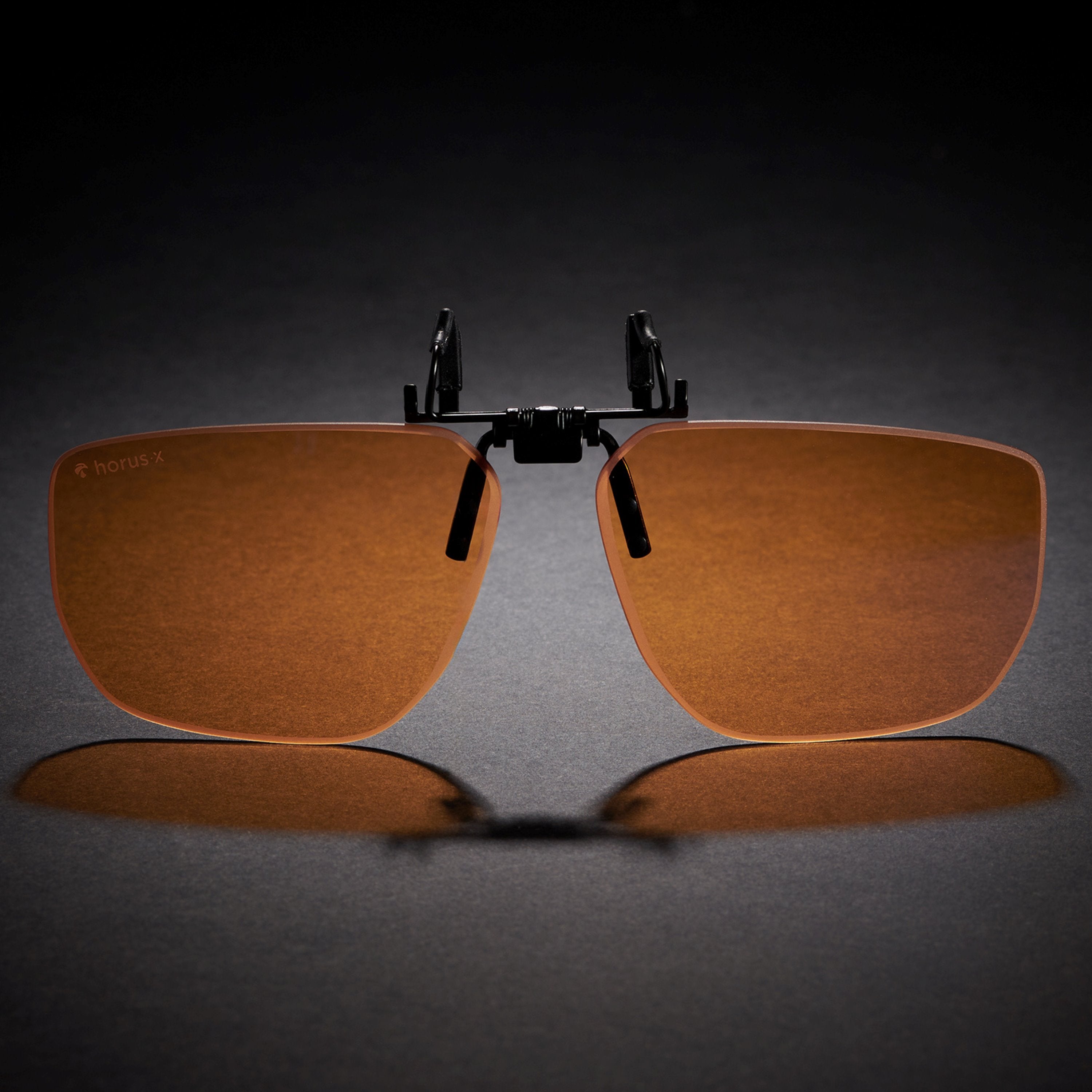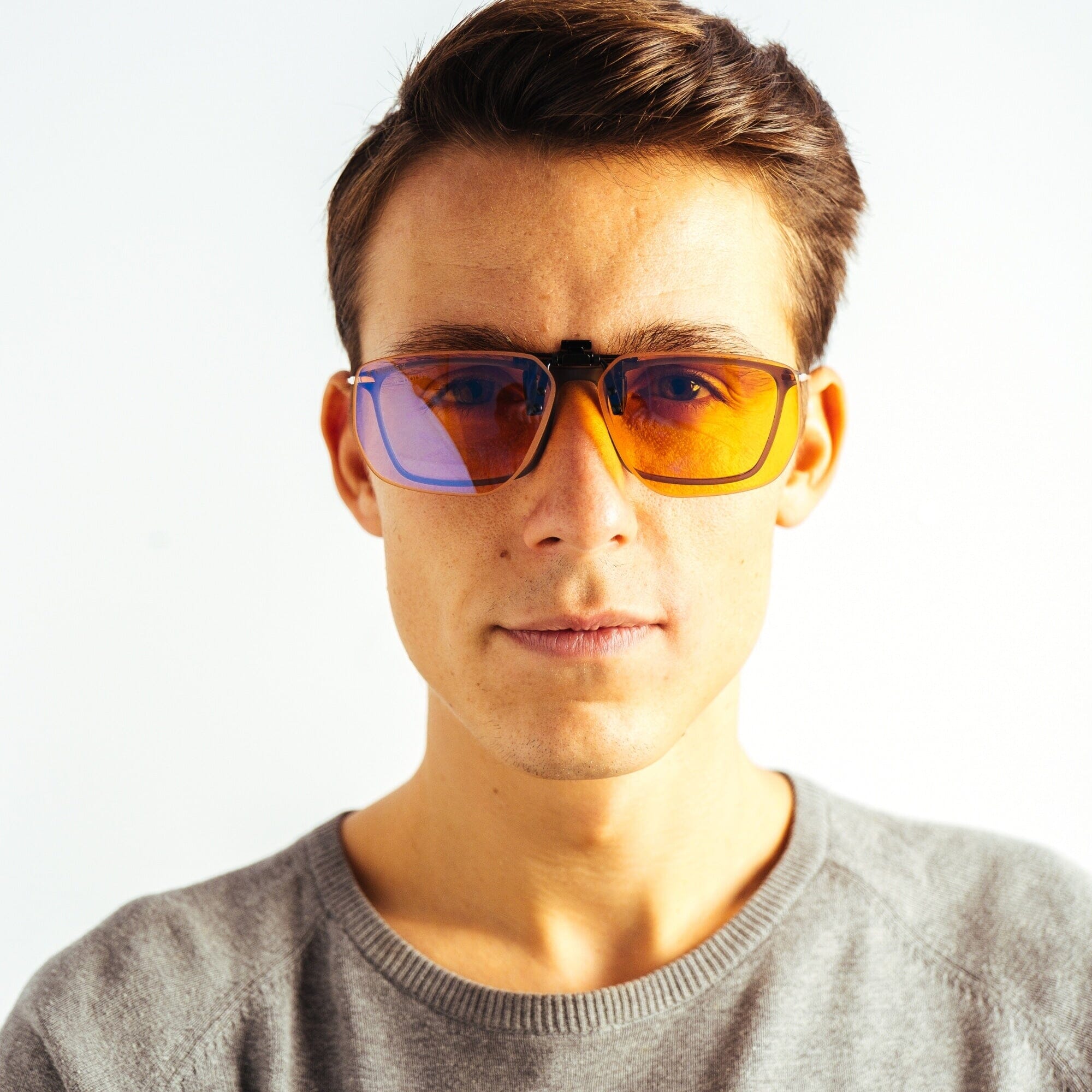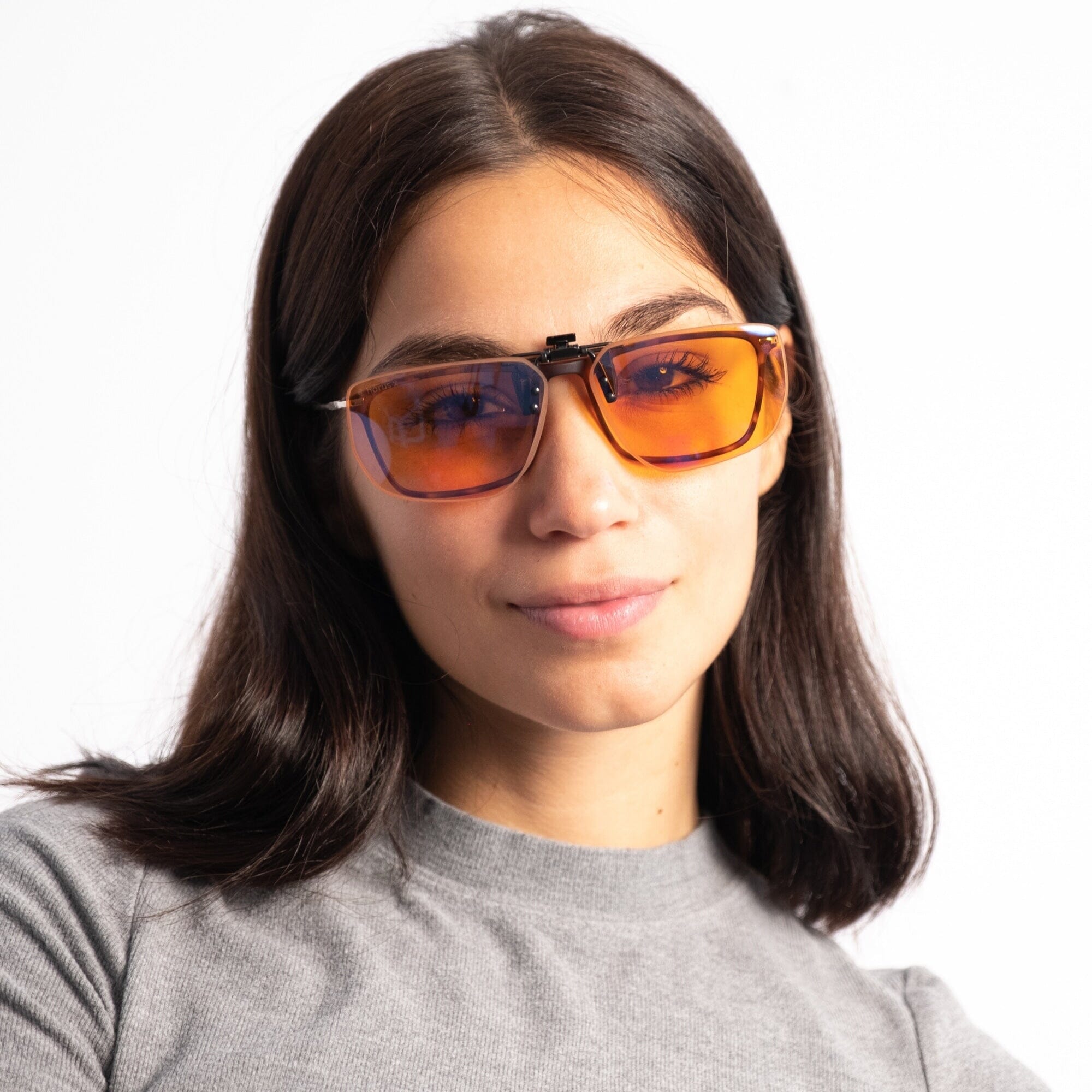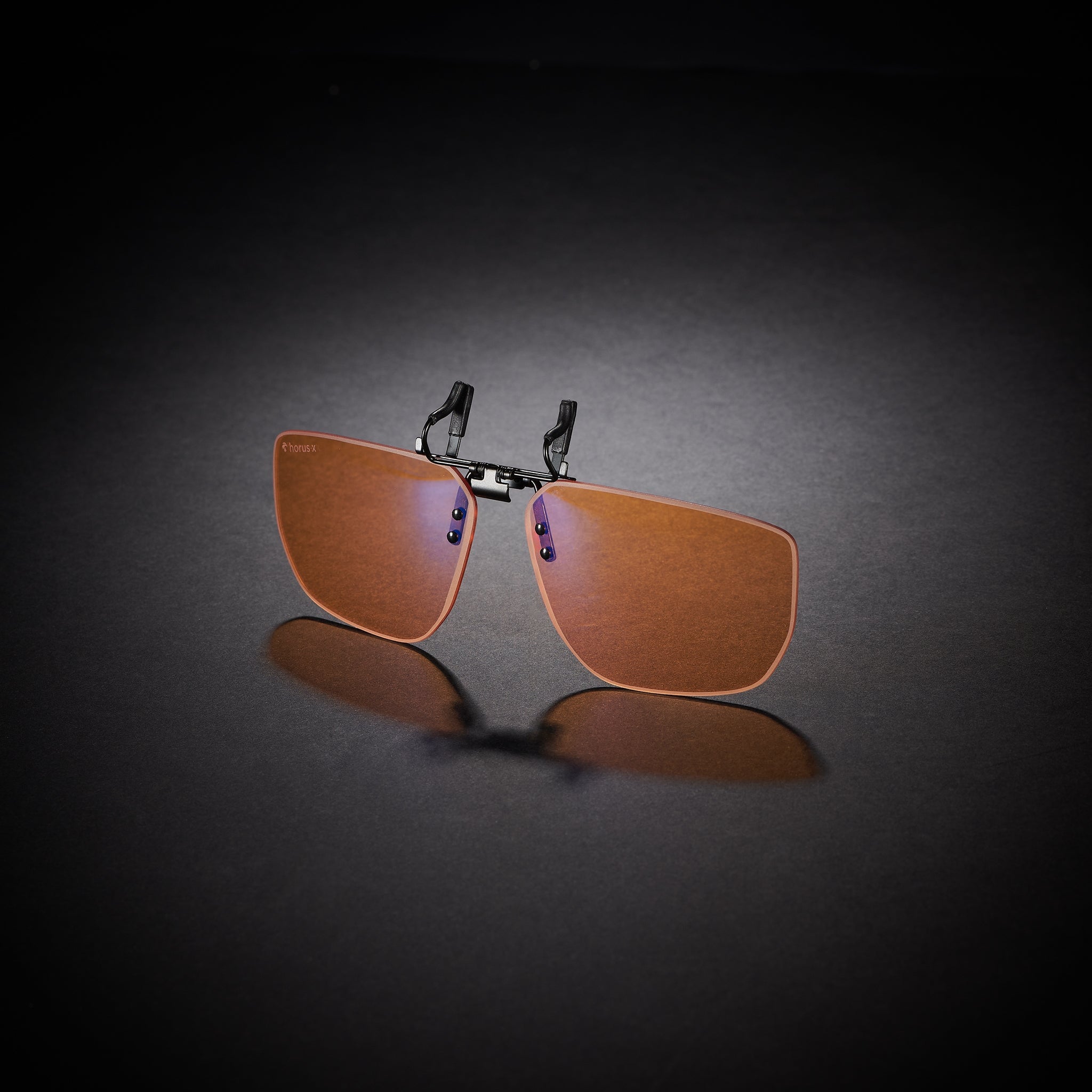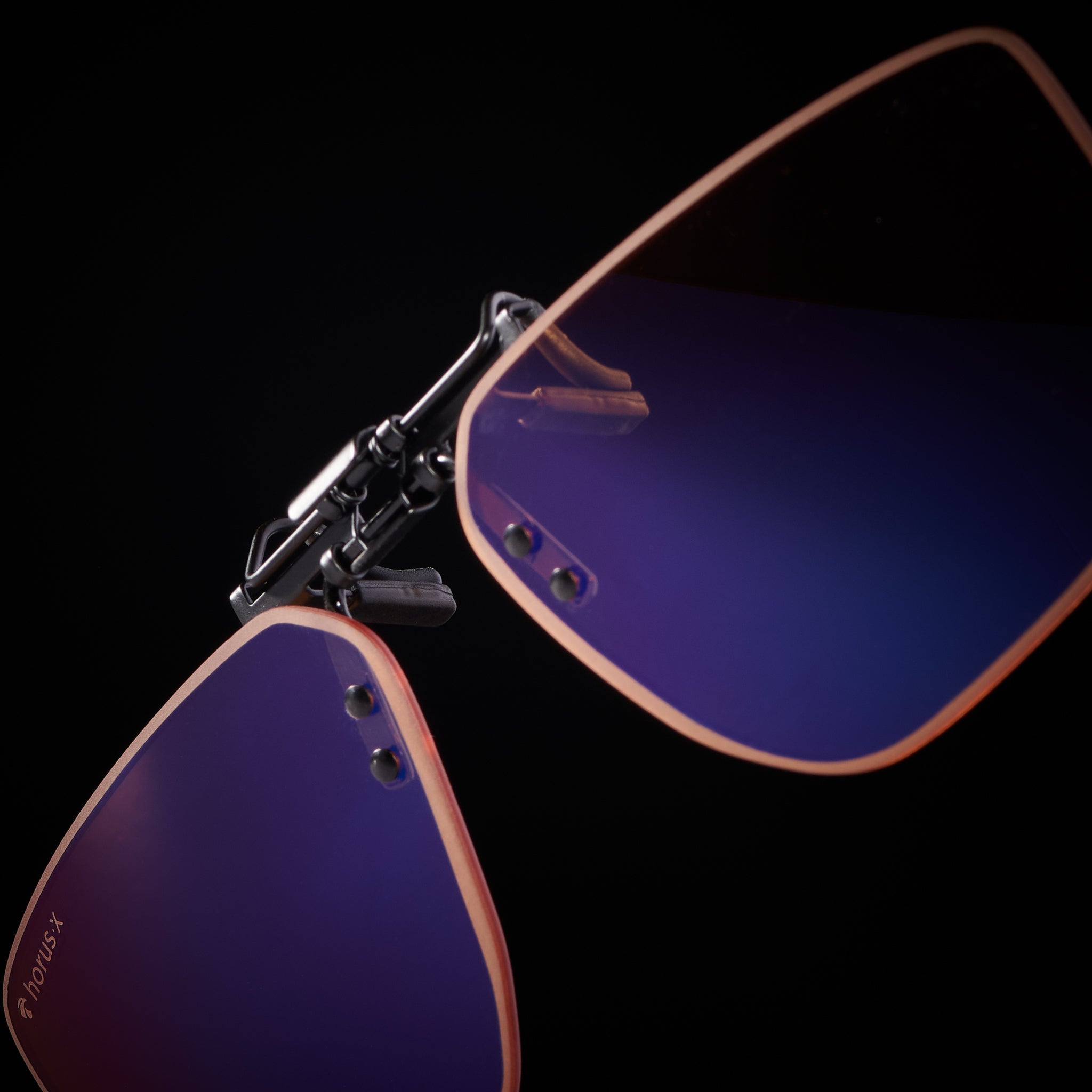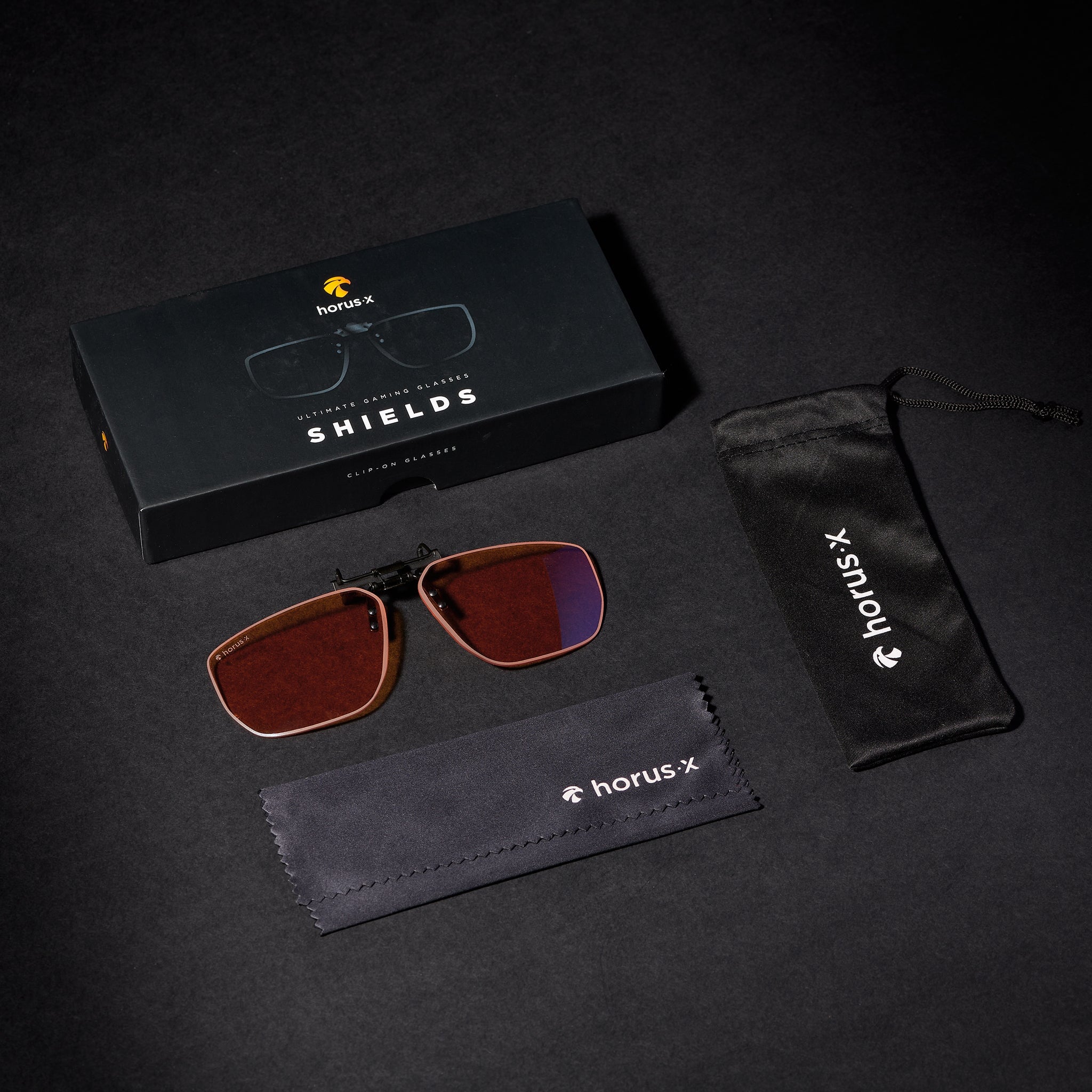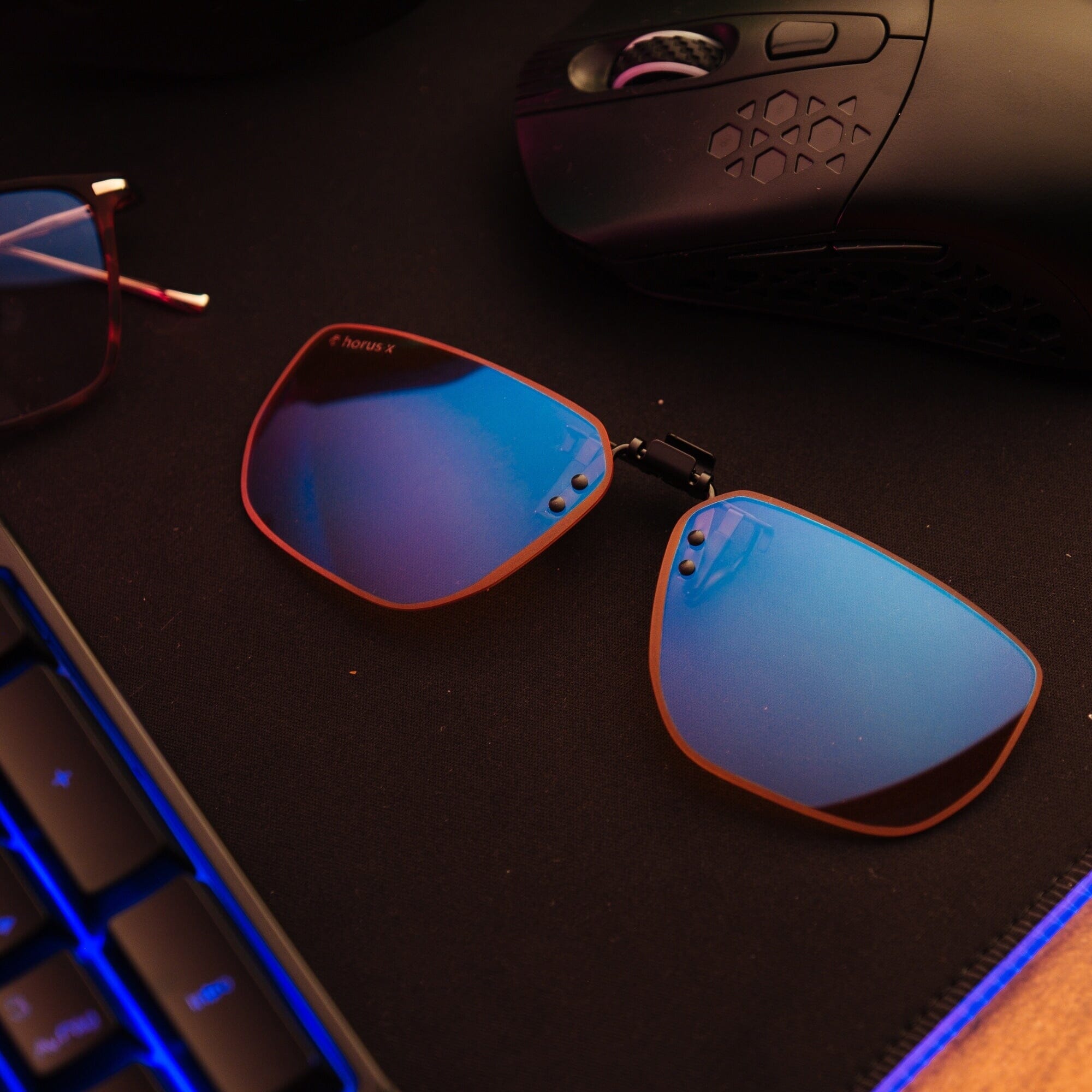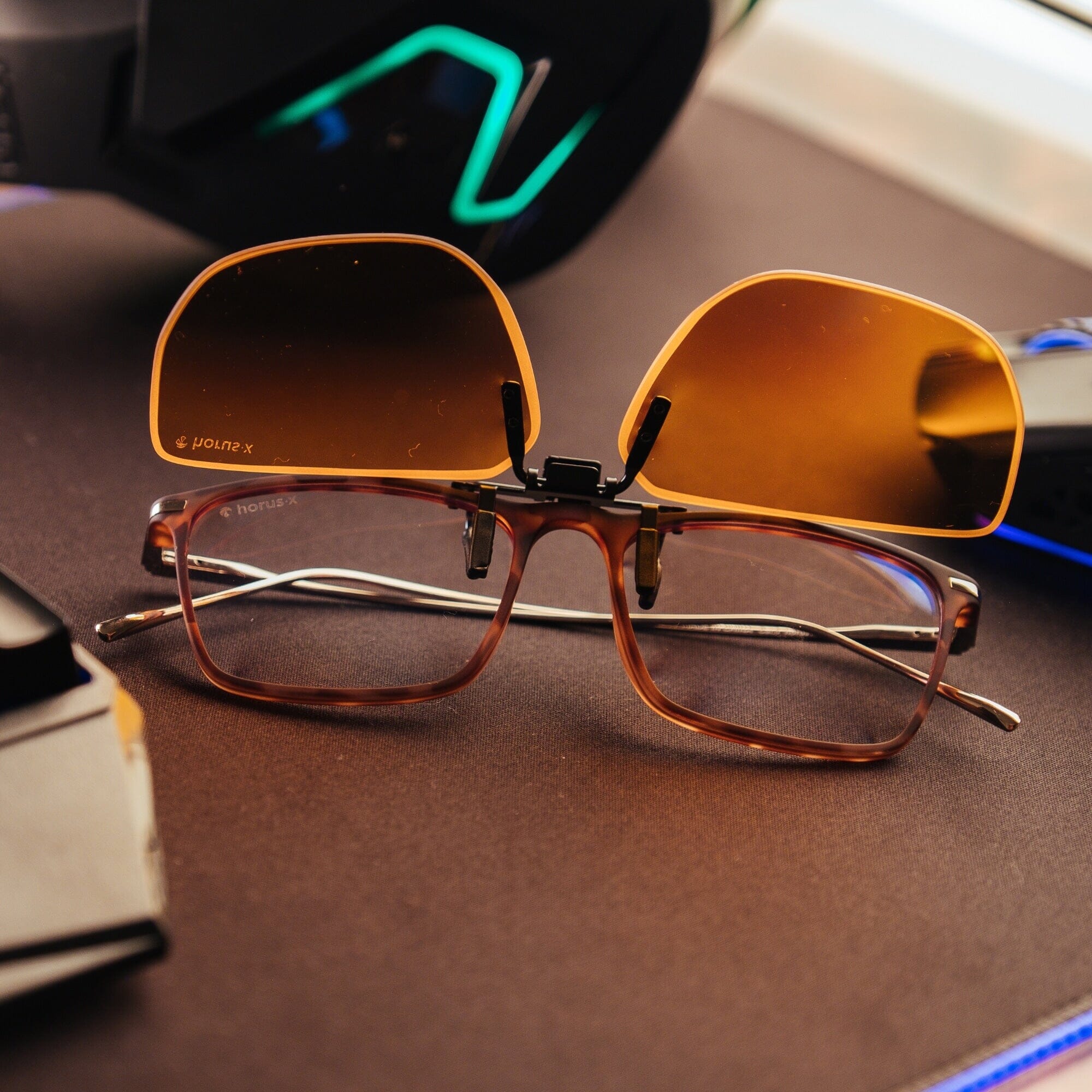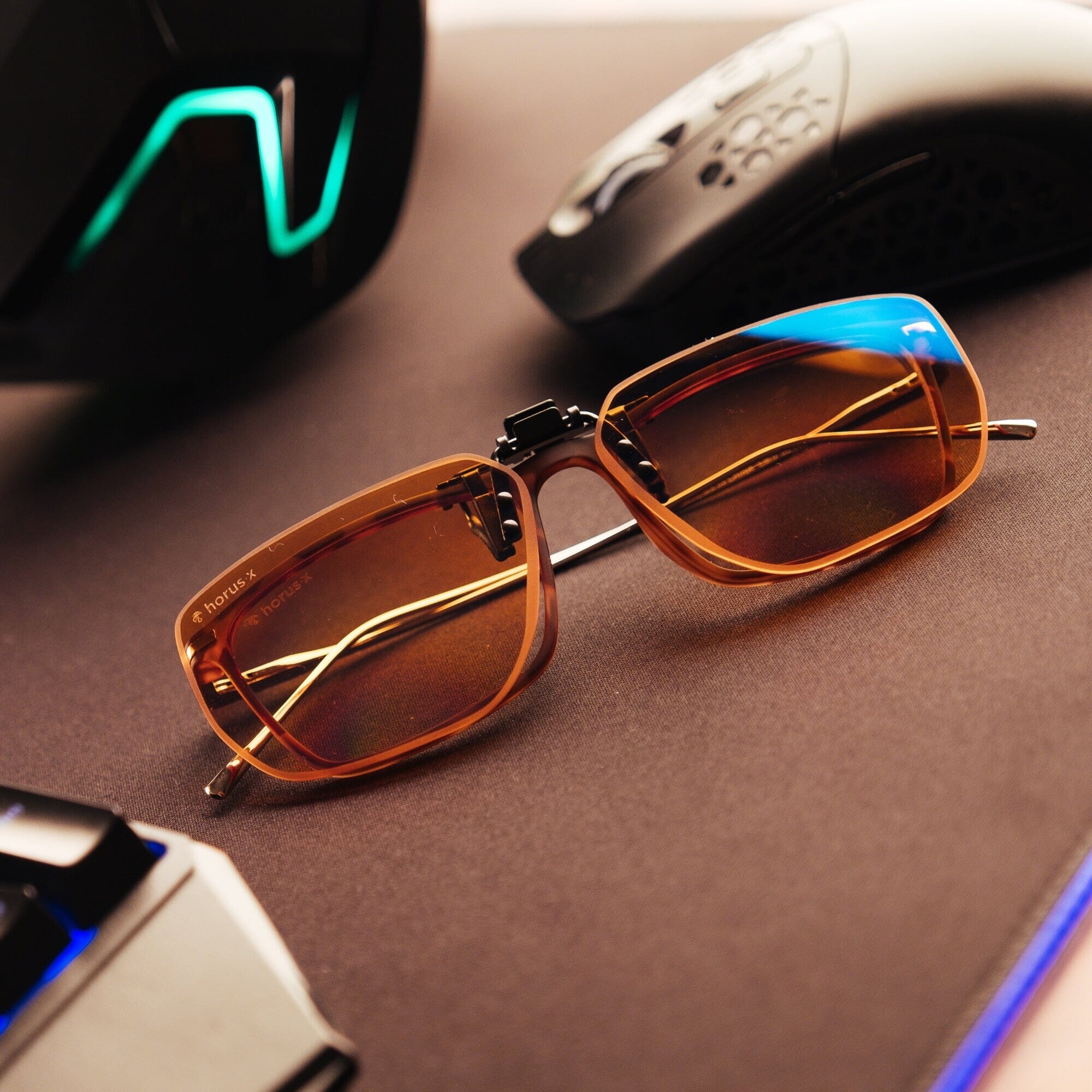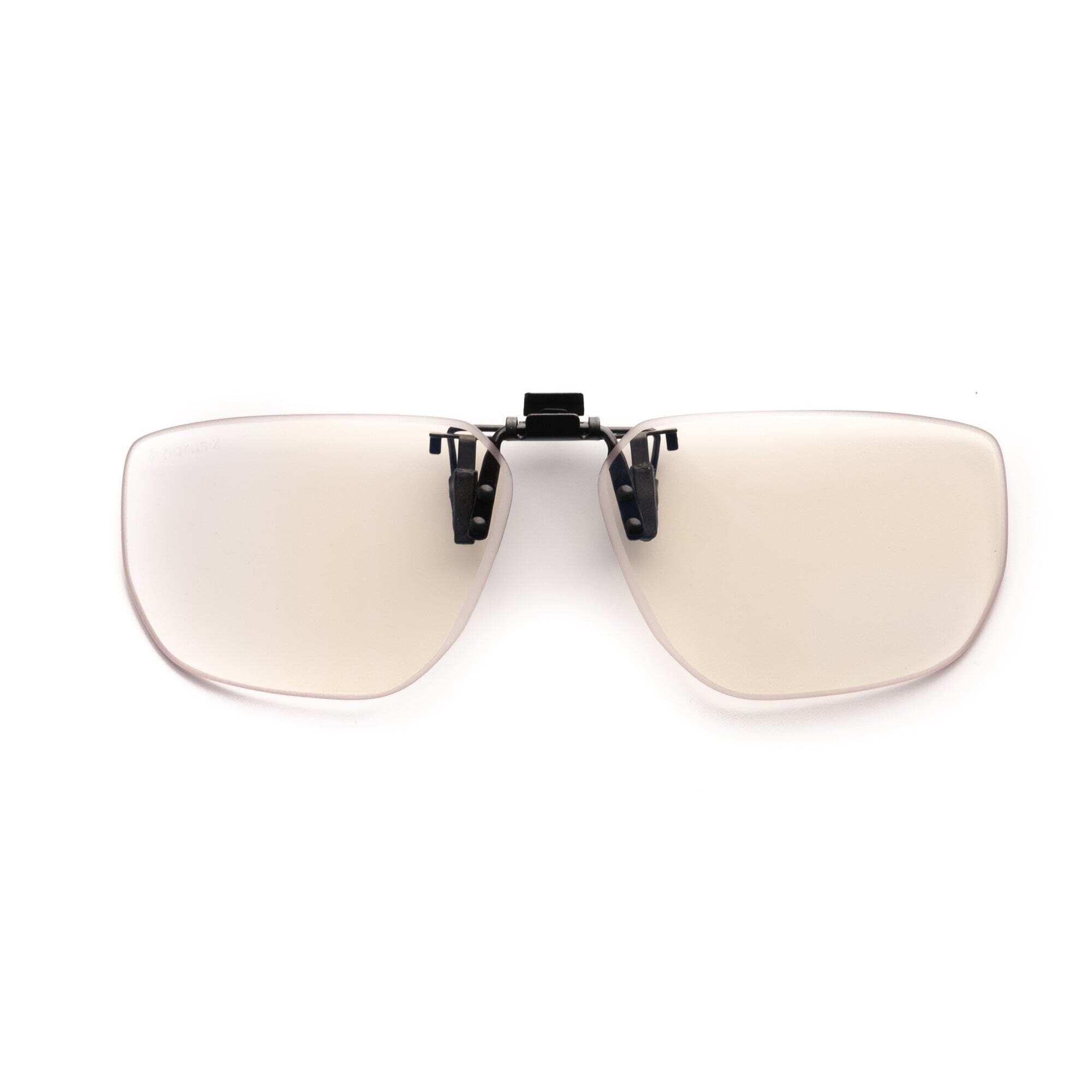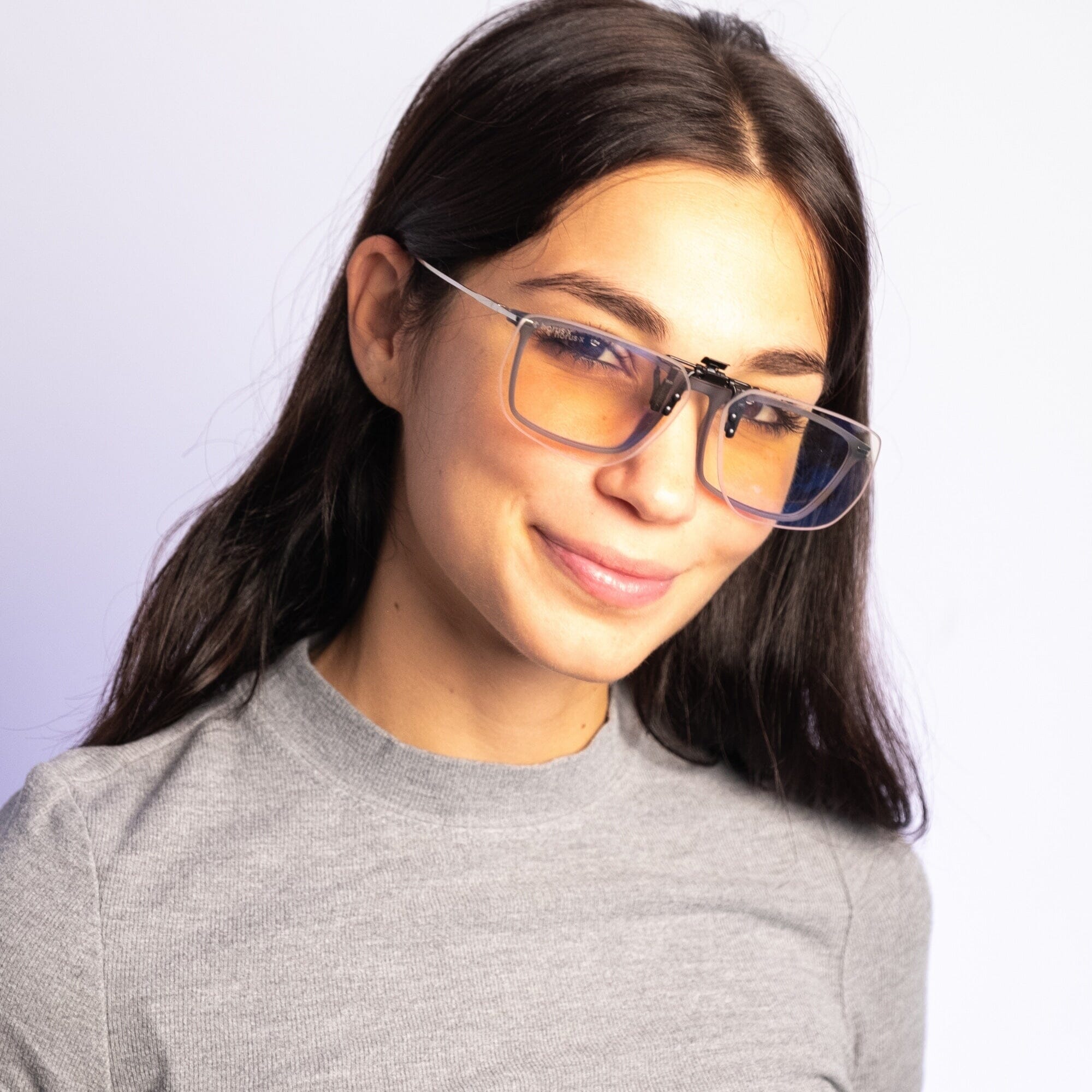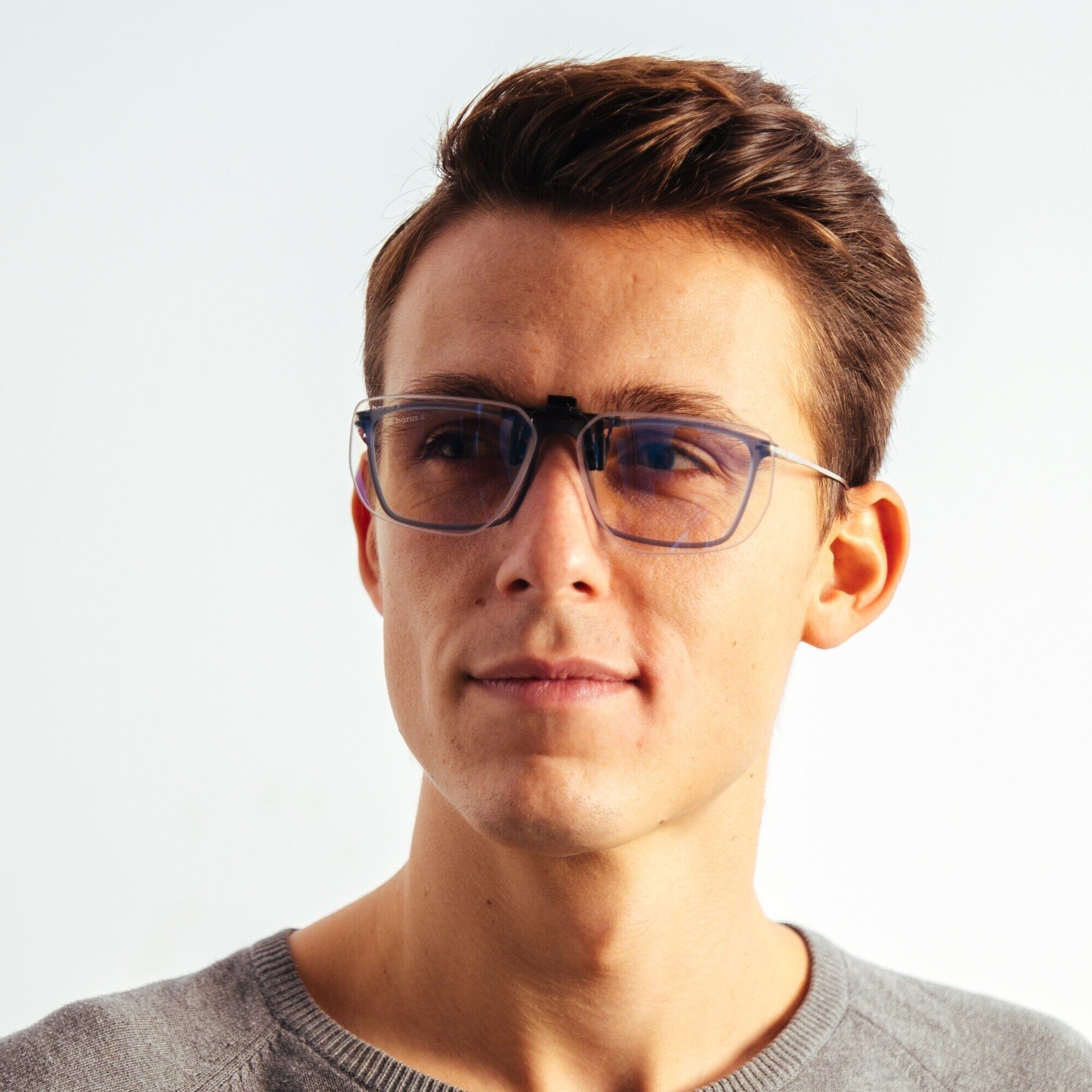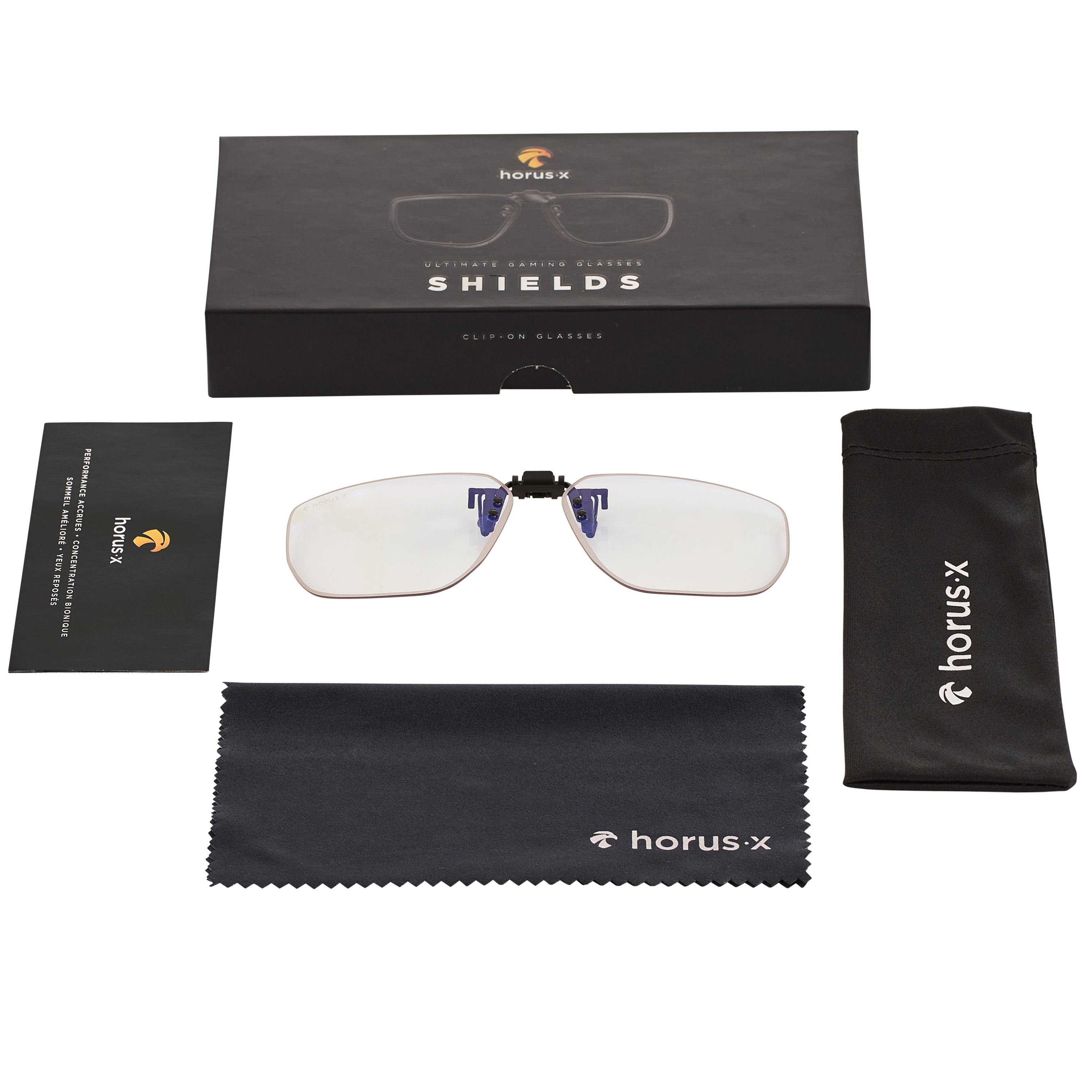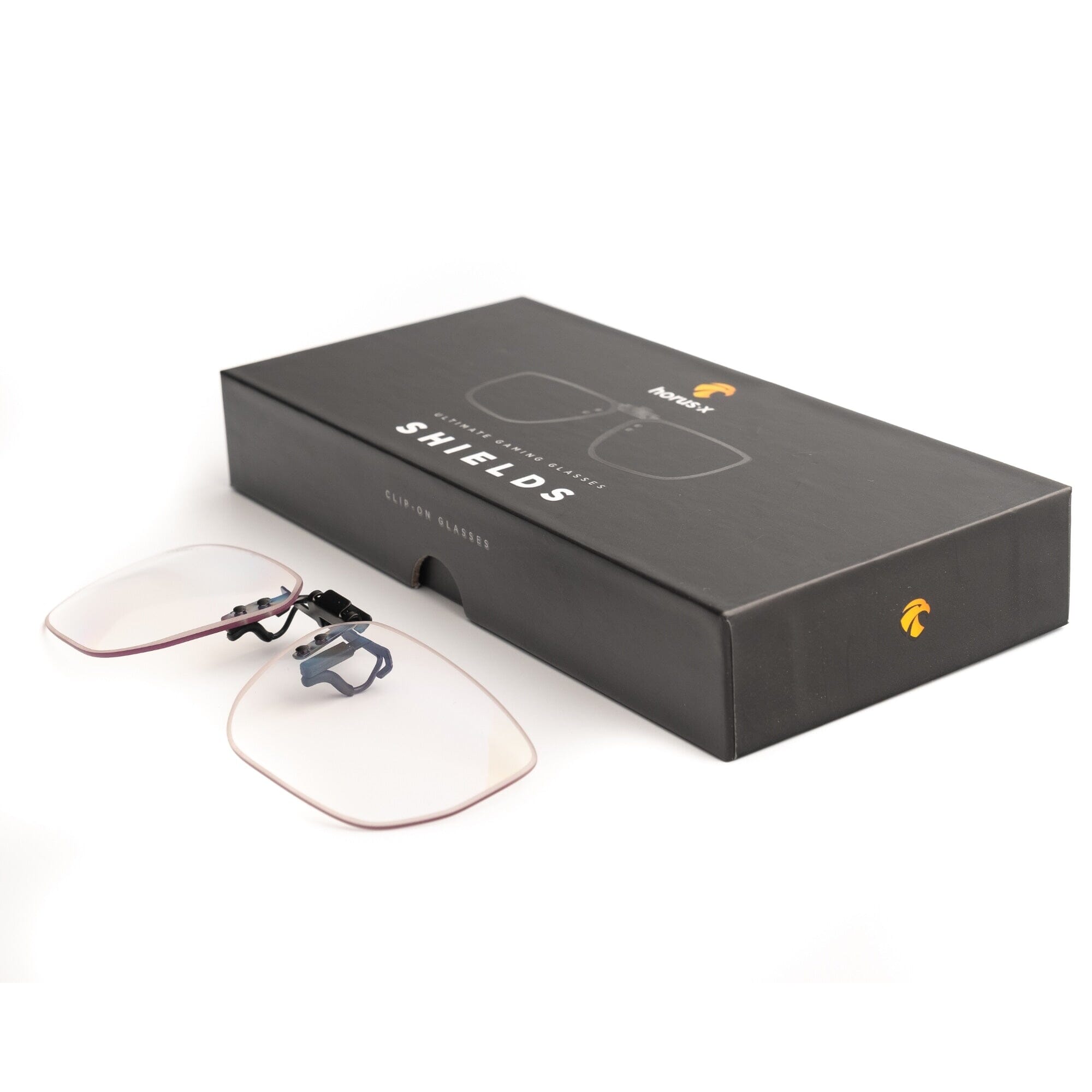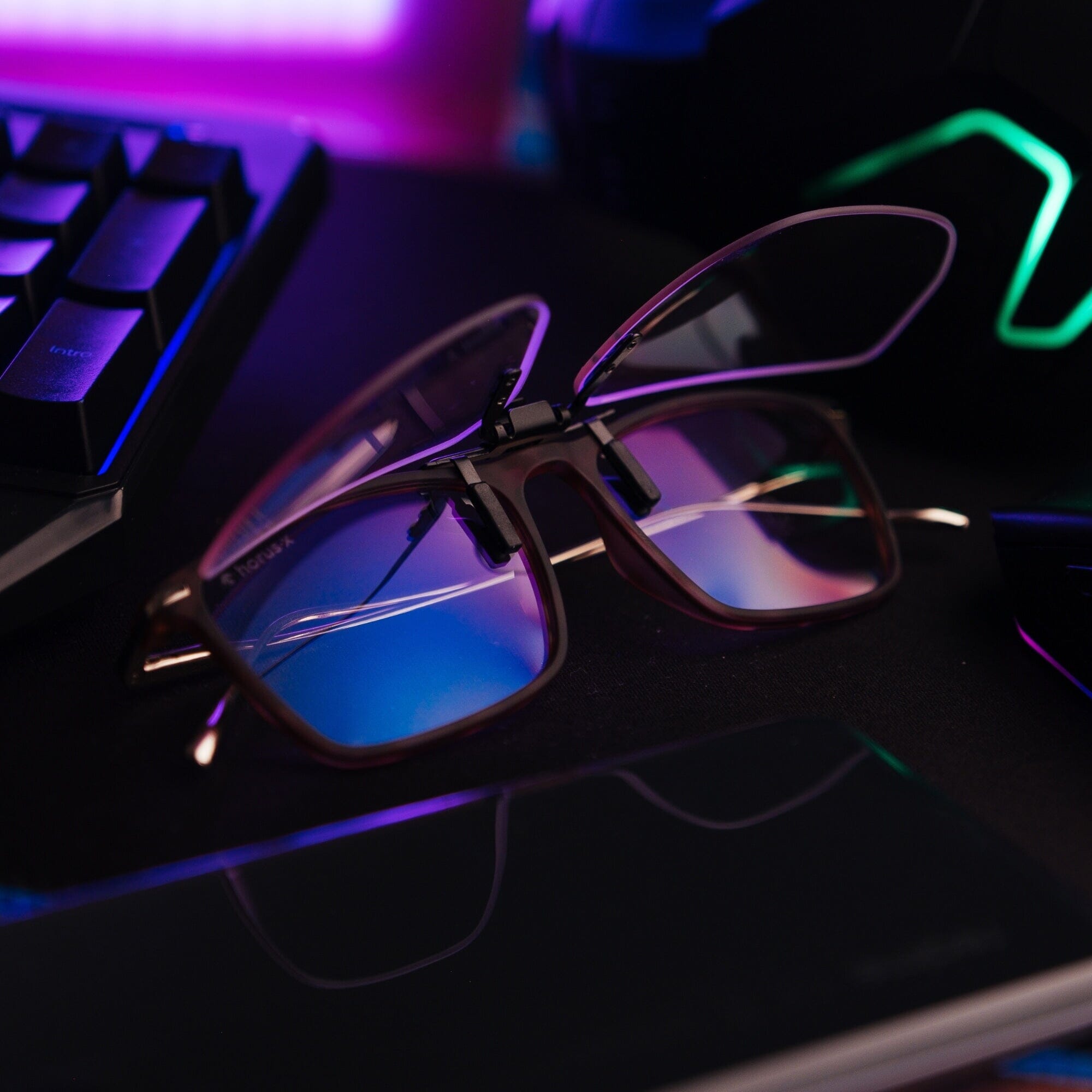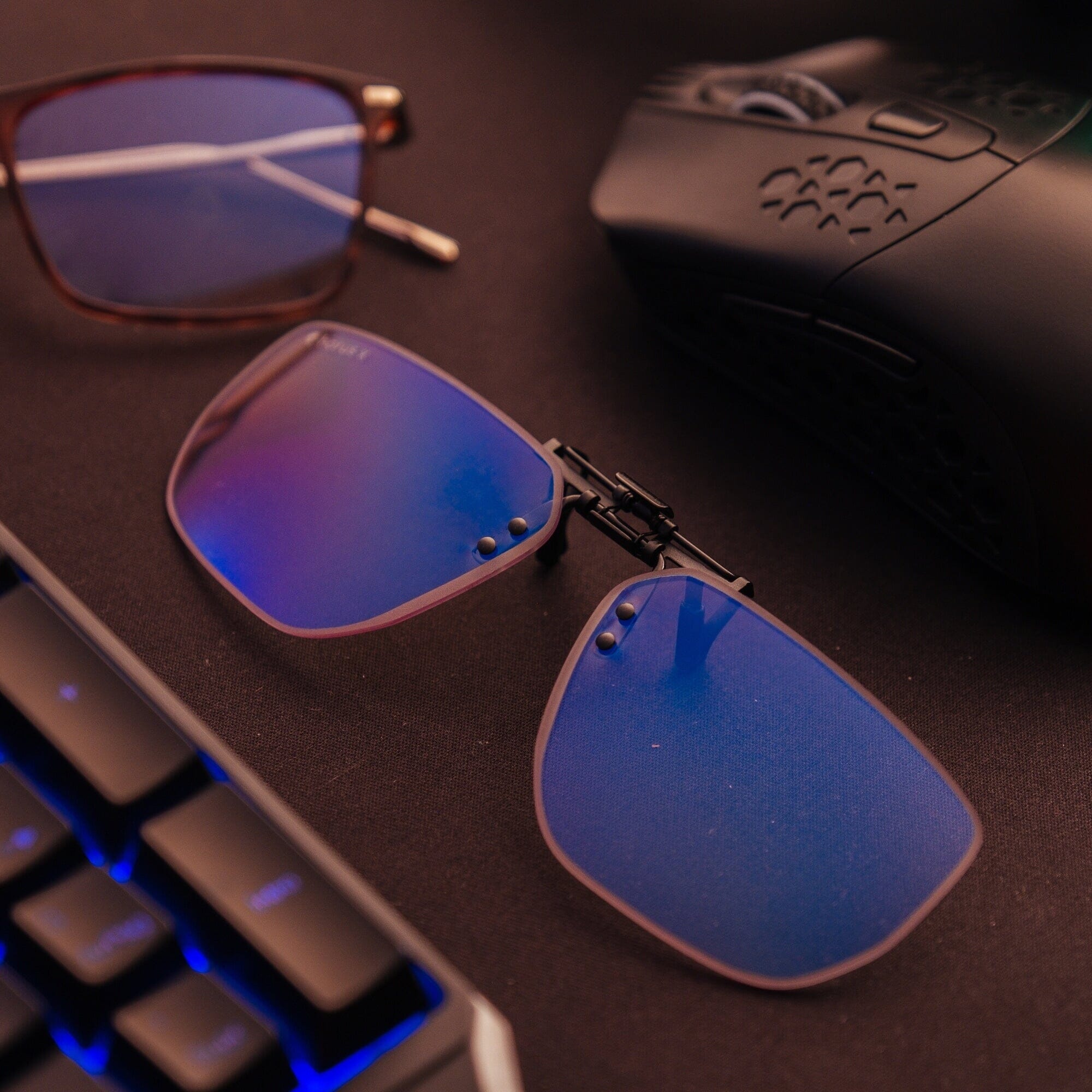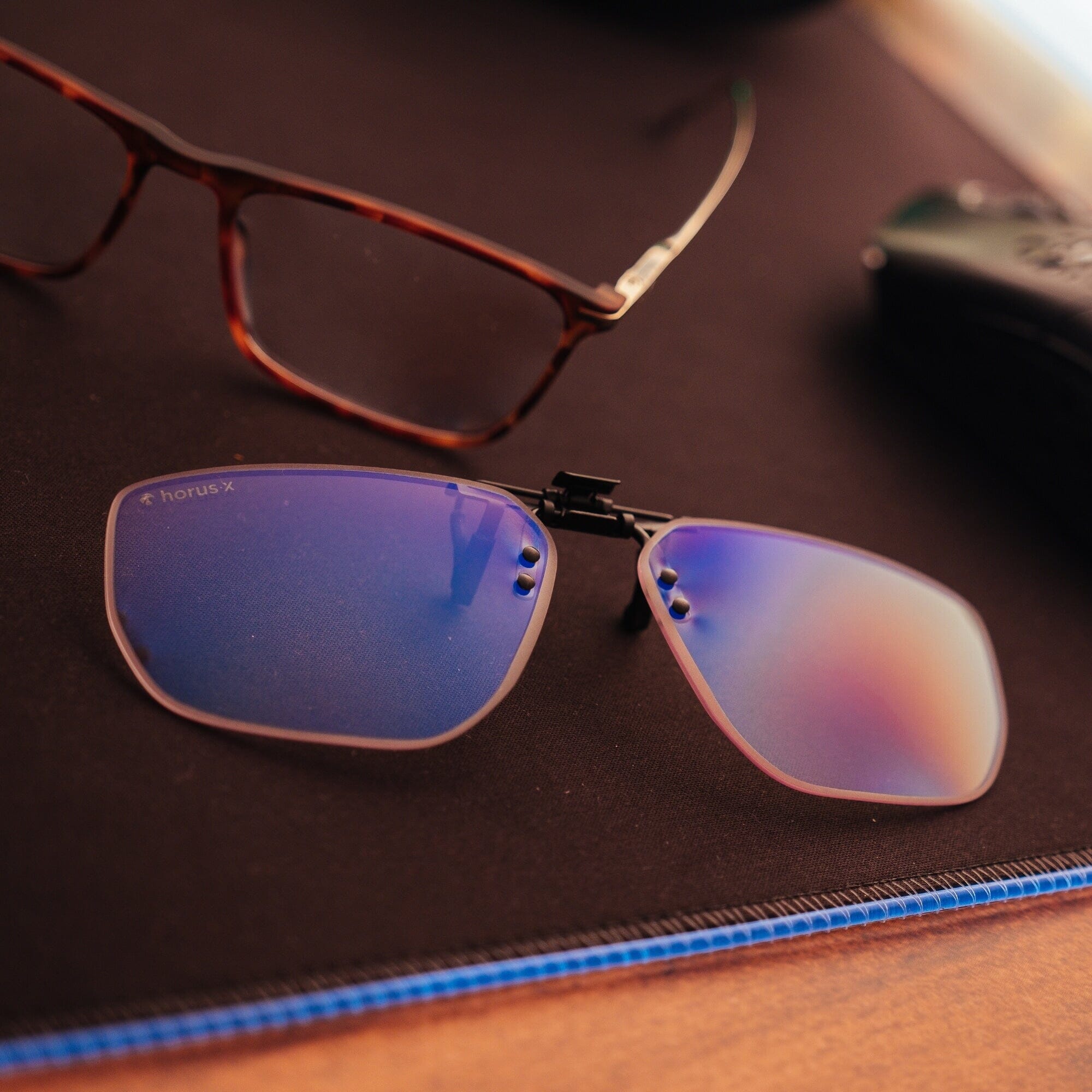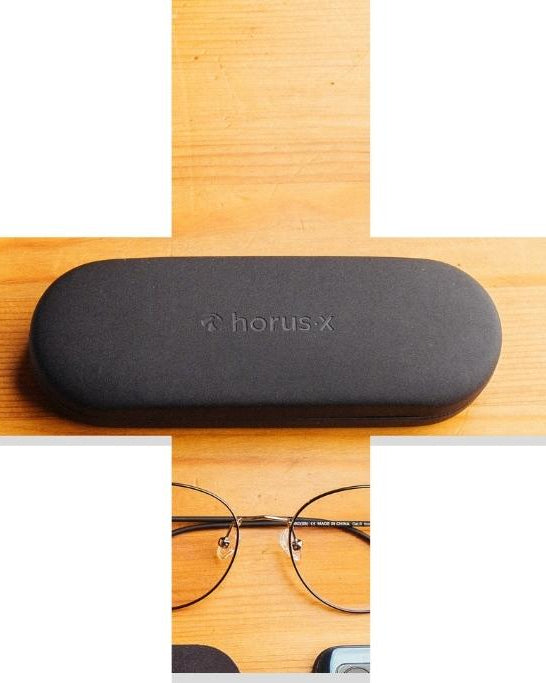Your cell phone is one of the main sources of blue light, and because of our obsession with them, it means we are constantly haunted by the spectrum of blue light. Like a very boring ghost.
But is blue light from phones bad for your eyes? Let’s look into the dangers associated with overexposure to your small screen and the best practices you can use to protect yourself effectively.
Blue light from smartphones impacts our daily lives
According to Statista.com 307 million out of 329.5 million US citizens have smartphones – that’s nearly 94%!
And with all of us staring at screens more and more throughout the day, we’re all at risk from the harmful blue light spectrum. We might need to check the latest news on the Kardashian's as soon as it drops, but our eyes don’t thank us for it.

Is blue light from cell phones harmful?
Are you a doom scroller? Do you spend hours in bed just staring into the black hole that is Tik Tok? Then pay attention.
The experts are unanimous in this, blue light directly impacts your sleep-wake cycle.
Blue light directly attacks the production of the sleep hormone melatonin which is essential for a good nights sleep. It prevents its secretion, subsequently slowing down or inhibiting the sleep process.
It’s insomnia guaranteed!
Needless to say if you already suffer from insomnia and sleepless nights, staring directly into blue light right before bed is not going to help things.
Consequences during the day
Staring into the void of your smartphone all day will impact your visual comfort. It is also one of the primary causes of finger fatigue and computer vision syndrome (also known as digital eye strain).
This results in a lot of uncomfortable symptoms including: tingling, dry and red eyes, and headaches. In short, not very pleasant. Blue light contributes and exacerbates these symptoms due to being much more intense than the other colors in the light spectrum.
The harmful blue light spectrum delivers short and powerful rays that penetrate the eye more easily and aggravate eye fatigue.
Long-term risks
There are much greater long term risks to constantly being exposed to blue light from your cell phone screen than you might expect. You won’t develop superpowers, or X-Ray vision, but you might find yourself a victim of retinal damage or eye disease, like AMD – age related macular degeneration.
Of course, it’s not the only cause of AMD, but it certainly doesn’t help.

Protecting yourself from your cell phone’s blue light
Less phone, more smart! Find the balance and protect yourself from blue light. Before looking for a filter for your cellphone, the first thing to do is learn how to put it down.
Easier than it sounds, we know.
A little reduced screen time with your cell phone will do your eyes the world of good. To function properly, and have optimal eye health, they need to be used to regularly using switching between your long and short sight.
In day-to-day life you often naturally shift from looking at things up close to things further away. But when you’re constantly glued to your phone like an episode of Black Mirror, your eyes are constantly focused on one distance.
Without alternating your perspective regularly, your eyes weaken.
Constant cellphone usage is also a big part of the reason why the short sightedness disease known as myopia is increasing in younger generations.
It’s most dramatic in South and East Asia where almost 80% of teens and young adults suffer from it, but it’s a global phenomenon with alarming increases in rates of myopia across the states and Europe as well, according to The Atlantic. That’s because our prehistoric eyes have not yet evolved and adapted at the same rate as technology.

So, how do we try and stop myopia from developing?
A helpful preventative measure is to stop staring at screens at night in order to optimize your sleeping pattern. Ideally, turn off your phone and other blue light devices at least 3 hours before bedtime or suffer the effects of reduced REM sleep. That means no more waiting up till 2am for the latest House of the Dragon episode to drop.
And if you’re getting a bit older and find yourself waking up in the middle of the night, stop automatically checking your phone! Nothing has happened in the past 6 hours. The world hasn’t ended, and Idris Elba is never going to reply to your tweet; so, stop letting it affect your sleep!
Optimize your digital screens: How to remove blue light from your phone
Now you know the details on the issues blue light can cause, you might feel a bit more willing to protect yourself using these tips below.
Adjust your cell phone’s brightness
Most modern smartphones offer this option by default. Brightness is automatically adjusted by your phone to match the ambient light. This relieves your eyes and improves contrast.
If your phone doesn’t do this automatically, you can do it yourself under the brightness option in your settings. If you don’t have this option, you can download an application off your relevant phone store that will allow you to adjust your brightness.
Use a digital filter: Activate night/dark mode to remove visible blue light
Night mode or “blue screen mode” are also basic features most cell phones have nowadays (but maybe you haven’t updated yours in a while). If it does have it though, you can swipe to your tools menu from your home screen to find it. It’s usually available on most phones (Apple, Samsung etc.) and operating systems (Android, IOS and Google).
Use a physical filter: Use a blue light filter
You can also buy filters stickier than Halo’s plasma grenades to apply directly to your screen. This can be a good solution, but not everyone wants to permanently alter the quality and lighting of their cell screen. Also, most manufacturers fail to provide information on exactly how much blue light is filtered – so it might not be as helpful as you think.
Get yourself some glasses: the best way to block blue light.
Better than any of the options above is finding yourself a nice pair of anti-blue light glasses. They offer the optimum eye health protection and are of much higher quality than other types of filters.
Quite simply, they make it possible to guarantee optimum filtration at the most harmful wavelengths – something the other options don’t provide information on.
A good pair of blue light blocking glasses will:
- 🛑 Block 100% of UV light rays (A, B and C) to fully cover yourself.
- 🛑 Block 100% of the most aggressive and dangerous blue light, which is between 380 and 400 nanometers
- ⚠️Block between 50 and 95% of the extended blue light spectrum, depending on use and individual sensitivity (between 380 and 450 nanometers)
- 💡Maximize light transmission so as not to lose the picture quality.

A few recommendations:
- Glasses with a blue light filter that suits all scenarios. Whether it's your cell phone, computer or just hanging around outside, get yourself a stylish pair of blue light glasses that look good on the go. We suggest our Ushuaia glasses.
- Glasses with an intense blue light filter. If you’re a hardcore gamer on their 6th straight hour of Cyberpunk 2077 or binge watcher marathoning all of Rings of Power at once, then you need stronger protection. Computer glasses with an amber lens will allow you to keep going and limit your nighttime blue light exposure. Check out our model – the Revolution Gaming Glasses.
- Glasses with blue and solar light filtration. Who needs to spend time with family, when you have the whole world at your fingertips? You’re in ultra-hardcore mode using your cellphone at the beach, in constant bright sunlight. So, you need an ultra-powerful filter to match. Meet: The Urban Sun.
- Shield glasses: These are to clip onto your existing prescription lens. Check out our amber lens shields for ultimate protection.
Final thoughts: Blue light and cellphones
Most of us are closer to our cell phones than our best mates. But depending on your usage they can also become your worst enemy if you don’t take precautions. That means limiting your LED screen time and turning off the television or putting down your phone.
Think about sleep, your wellbeing, and your long-term health. By putting these good habits in place, and limiting your nighttime exposure, you can regain your serenity and finally get a good night’s sleep.



